A Real-World Adventure: My Week with Ukrainian Refugees
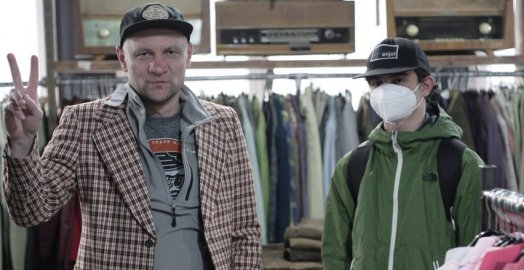
Editor's introduction: By its very nature, Adventure Gamers is a website dedicated to having a good time. With everything that’s going on in the world, we all need distractions and outlets and emotional releases from the daily pressures of life, and what better way than to focus on one of our favourite shared pastimes?
Sometimes, though – as we’ve become all too aware in the past couple years in particular – there are issues so serious that it’s hard to celebrate fun and games in times of crisis. The Russian invasion of Ukraine is just such an occasion, as we’ve watched in horror while unprovoked attacks have killed or wounded countless citizens, devastated cities, and forced more than ten million people to flee their homes.
Various countries in Europe and around the world are welcoming Ukrainian refugees, but the demand is high and the process slow, leaving many displaced families to scrounge for temporary accommodation. It can be heartbreaking to see, and it’s easy to feel helpless in the face of such overwhelming tragedy.
Living in Germany, Adventure Gamers’ Piero Serra wasn’t content to merely stand by with so many in desperate need, and decided to do what he could to assist those who'd embarked on an urgent real-world adventure. This is his story – it’s no game, but we think you’ll agree that everyone involved surely came out a winner.
Like many people in Berlin, when my girlfriend and I saw the news about refugees from the shocking Russian invasion of Ukraine arriving in Germany, we felt a shared responsibility to help our near neighbours in some way. At the most basic level we could donate money or clothes, but we wanted to take things a step further and provide possibly tired and confused Ukrainians with a place to stay. Some friends had already given their spare room to a family of four, but our flat is small (and we partially work from home) so we knew we couldn’t provide any sort of long-term accommodation. But a place for new arrivals to the country to rest, shower and eat for a week or two whilst they found their bearings at least seemed possible.
We joined an online registration list of people offering beds for refugees, but after almost a week we had heard nothing, so we decided to take matters into our own hands. That weekend we caught the U-Bahn to Berlin’s main train station, Hauptbahnhof, from which we had seen news images earlier in the week of groups of Berliners standing with placards to welcome people from Ukraine, as our friends had done. Many of the signs we saw offered bedrooms, with information showing how many people they could take and which languages they could speak, written in Ukrainian or Russian (the two main languages of Ukraine) so we made a similar one. However, by the time we arrived at the station there seemed to have already been a loosely structured but chaotic system of ‘processing’ the refugees put in place. We waited around by the entrances to the platforms with trains arriving from Poland, and on the platforms themselves, but it was very busy and of course not immediately clear who was arriving from Ukraine and who was not.
We met another local couple with a young child who were attempting the same thing as us, and decided it might be best if we stuck together. After a while we approached one of the volunteers by the newly erected tents where small queues of refugees seemed to be waiting to enter. Unfortunately, he knew little more than we did about where best to stand with our sign. He explained that lots of arrivals were being advised to travel further into Germany to other cities if possible, to take the strain off of Berlin (which is the first German city one can reach from Poland, which itself borders Ukraine) but many stayed. By that time Poland had already received 1.5 million refugees, so many Ukrainians were continuing on into Germany. Other countries such as Romania and Slovakia were, and are, also taking refugees but in smaller numbers. The volunteer pointed out that whilst he thought it was great that we wanted to help, there had sadly been reports earlier in the week of people trying to take advantage of the situation by abducting female travellers and children directly from the station. For this reason, there were now many signs around written in Ukrainian urging the refugees only to accept offers of help from officials in orange jackets, in and around the tented areas.
Undeterred but feeling a little conspicuous now, we continued to wait and the family with the child did eventually meet and leave with a young mother with a child of a similar age. After another hour of standing around alone, we were getting a little tired so we bought some food and sat down in a patch of sunlight. No sooner had we started eating than a man in a baseball cap approached us, and my girlfriend looked up and asked him if he needed help. He pointed at our sign, which was still in view, and a boy standing just behind him asked us in uncertain English if they could stay with us. We said yes, and waited as they spoke together for a while, then they nodded and we all made our way back to our flat.
Nikita and his father Vladimir had arrived in Berlin that morning. Originally they are from a Russian-speaking part of Ukraine centred around the city of Donetsk, known as the Donetsk Oblast. This is a disputed territory in the far Eastern part of Ukraine. A breakaway state, it is currently controlled by pro-Russian separatist forces, and there was already fighting in the area for many years before Putin’s invasion of Ukraine began in earnest in 2022. As Nikita would explain to me, his father, who was born in Donetsk, had always been strongly opposed to the USSR since childhood. This had made his father an outcast at school and seemingly continued to cause him and Nikita problems right up to the present day. I didn’t want to press for too many details, preferring to just let Nikita and Vladimir tell me whatever they felt comfortable sharing, but Nikita sketched me a map that showed how they had already been forced to crisscross Ukraine many times since he was a young boy, moving from city to city and from east to west, staying in many different places.
Of course, Vladimir – or Vova for short – and Nikita had not just taken a direct train to Berlin. We learnt that they had been travelling for seven days since leaving their last place of residence in the Ukrainian city of Zaporizhzhia – the home of Europe’s largest nuclear power station, which Putin’s forces had (unbelievably and stupidly) attempted to shell in the early days of the invasion, making it far too dangerous to stay. From there they had taken a crowded train to the large Western Ukrainian city of Lviv, a journey of 550 miles. Once at Lviv, they were interviewed for many hours by the authorities. Because they were male, and were from Donetsk and spoke Russian, they were thought to be potential pro-Russian saboteurs. In addition, all able-bodied men between the ages of 18 and 60 must now fight in Ukraine. Nikita is currently 17 and not eligible for conscription, but his father is approaching 50 and therefore would still be required to join the army. However, because Nikita’s mother had died when he was a small boy, as a single parent Vova still has to look after his son and was therefore granted the right to leave the country with him.
After these interrogations and checks had been conducted, the next day Vova and Nikita were allowed to board a special train for refugees. This was bound for the tiny Polish city of Przemyśl, approximately 50 miles away, just over the border between the two countries. From Przemysl they travelled 200 miles northeast in a packed bus to the Polish capital, Warsaw. There they had to remain for two days whilst organizing their continuing travel into Germany, and spent a night with a kind Warsaw resident in his flat. I am not sure if they had already decided on Germany as a destination, but I understood that they were not allowed to remain in Poland in any case. Eventually, another train took them the 330 miles from Warsaw, directly east over the border into Germany. They arrived at approximately 9am in Berlin, after a combined journey of almost 1150 miles (which is just my conservative estimation) by road and rail from where they had started in Zaporizhzhia. For most of that journey they had had to stand, and had been unable to shower between their home city and Warsaw.
Upon arriving in Berlin, Vova and Nikita found themselves pushed to the back of the queues for help and information, as priority was being given to women and families with young children. This much more vulnerable demographic makes up the vast majority of Ukrainian refugees, and it is only right that they should be cared for first. However, the sheer numbers meant that any men travelling alone or in groups had to wait and wait. By early afternoon they had been offered a spot in a crowded and dirty sports hall somewhere in Berlin, but upon seeing it and finding out that it lacked any showers and other basic amenities, they decided to make their way back to Hauptbahnhof in search of more information. Nikita told me that when we met them late that afternoon, they had not managed to find any alternate accommodation and were exhausted and praying to God for help when they saw our sign.
On our first full day with them, which was a Sunday, we took Vova and Nikita to an anti-war protest in the city. We met another friend of ours there and walked the several-kilometres-long route together between Alexanderplatz in the eastern part of Berlin to the Brandenburg Gate in the west, next to the Reichstag (the German parliament building.) I had not been to many rallies before and was surprised by how sombre it all was: even though there was sunlight, some music and banners, many tens of thousands of people – and a gigantic ugly papier-mâché head of Putin attempting to swallow Ukraine whole – everything seemed somehow muted. I’m not sure what Nikita and Vova thought of it all, but they seemed relaxed and were keen to see something of Berlin.
Over the eight days they stayed with us, we of course got to know them better. My girlfriend and I both work from home, so during the day Vova and Nikita usually left the flat and did research into registering for a visa, obtaining some money, etc., but we often ate breakfast and dinner together. During these times we listened to lots of each others’ music, and learned that Vova is a lover of 80s rock and a metalhead, while Nikita likes not only metal but also hip hop and shoegaze. They showed us photos of Nikita through the years on Vova’s phone, and heard how they had moved around within Ukraine many times over the past decade in search of work and accommodation due to various political and economic problems. Although Nikita had learned a lot of English at school, he was not confident and we sometimes relied on translation websites to make complicated points. Vova spoke only Russian, but picked up many English words throughout the week, which he would use with some pride. He also told us about his 83-year-old mother, who still lives in Donetsk and had refused to leave. He described her as a ‘strong woman’ who played the accordion and was not afraid of Putin. Vova was of course worried about her and they spoke on the phone often.
 |
Vova tries on an old, worn check jacket just for fun! |
The next weekend, Vova, Nikita and I went into Berlin for the afternoon to search for some clothes for them. I had planned to show them a few of the outdoor flea markets for which Berlin is famous, but they already knew of a second-hand emporium they’d found in the centre of Berlin, so we headed there. I know nothing about clothes whatsoever, but Vova and Nikita seemed to be experts. They were well-informed on the different brands, easily picking out fakes in amongst the famous labels, trying on all kinds of things and refusing to look at anything that wasn’t good enough quality. In watching them carefully sift through the selections, it dawned on me that even though your country is at war, you don’t want to walk around in clothes you’re not comfortable wearing if you can possibly help it. One of Vova’s big interests is clothing “technology,” which I guessed he had learnt about during his days as a trader of goods in Ukraine.
I was delighted to see that many of our friends and family members spontaneously offered Vova and Nikita items as well, like rucksacks and mobile phones, along with monetary donations during their stay with us. Once they heard the father and son's story, they wanted to help directly too, for which the two refugees were extremely grateful.
After a little over a week with us, they left on Monday morning to get a train ticket in the direction of Hamburg and maybe on to one of the surrounding cities near the Baltic Sea. The plan we had come up with together was for them to find accommodation in one of the smaller, friendlier cities, of which there are many in Germany. There they would hopefully find the waiting list for registration much shorter than the four- or five-week waiting time for an appointment proposed by the Berlin authorities, with work options for Vova in nearby Hamburg, and possible access to an art college for Nikita – whose favourite thing is to draw in his sketchbook. They also both want to learn more English and German. We made plans to stay in touch and perhaps even meet again one day, but for now their journey continues. The last we heard from them, they had made they way to Düsseldorf, in the far west of Germany next to the Netherlands, though whether or not they plan to continue further west out of the country is not yet clear.
Giving shelter to a refugee family may have been intended as a good deed to help those in need from the crisis in Ukraine, but as so often happens, we got as much out of it as we gave. Our week with Vova and Nikita is a real-life adventure we’ll never forget, and an experience we wouldn’t have missed for the world, though of course our heart breaks over the horrific invasion that uprooted them from their homes and everything they knew. Wherever they end up, my girlfriend and I wish them all the best in their new lives outside of Ukraine and hope they can return there safely one day if they should choose.
If you’d like to donate to charitable causes supporting Ukrainian refugees and score some great games in the process, check out the following opportunities:
Fanatical’s Stand With Ukraine Charity Bundle (includes Cube Escape Collection, Trüberbrook, Interrogation, Aviary Attorney, 8-Bit Adventure Anthology, Journey for Elysium, Nelly Cootalot: Spoonbeaks Ahoy!)
Help Ukraine Bundle (includes Whispering Willows, SIMULACRA 1 and 2, When the Past Was Around, Beasts of Maravilla Island)
Amanita for Ukraine (ends March 28th)
Assemble Entertainment’s Save the World Editions (Leisure Suit Larry: Wet Dreams Dry Twice, ENCODYA, Lacuna; ends March 31st)
Artifex Mundi’s Irony Curtain: From Matryoshka with Love (ends at the end of March)
If you know of other gaming-related endeavours, please let us know and we’ll update the list accordingly.



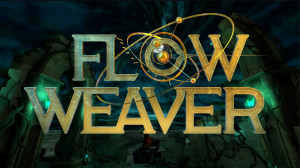
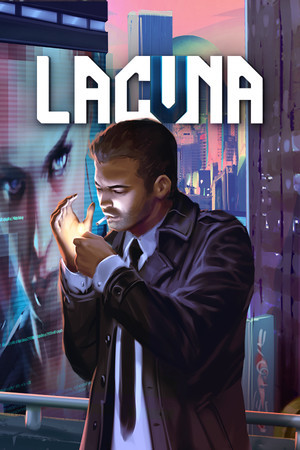
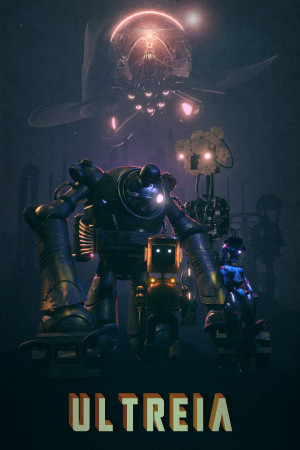

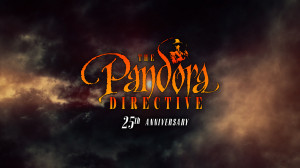
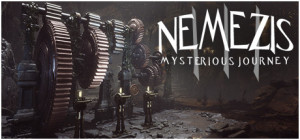
__medium.jpg)


